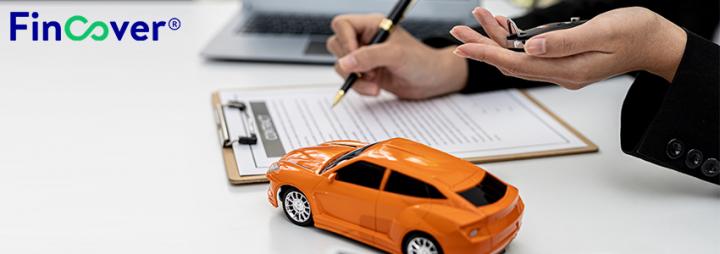Personal Loan vs Credit Cards: Understanding the Key Difference (Personals - Other Personals Ads)

AUNetAds > Personals > Other Personals Ads
Item ID 2248472 in Category: Personals - Other Personals Ads
Personal Loan vs Credit Cards: Understanding the Key Difference | |
Free Online Advertising Free Internet Web Site Advertising. UK Free Classifieds United Kingdom Free Ads Website. 100% Free Ad Posting. Canada Free Ads Popular Online Classifieds in Canada. No Sign up, No Email Required to Post. In today's fast-paced world, personal finance management plays a crucial role in maintaining financial stability and meeting various needs. When it comes to short-term financial requirements, individuals often find themselves contemplating between two popular options: personal loans and credit cards. Both these financial instruments offer convenient access to funds, but understanding their differences is essential to make informed decisions. This article aims to shed light on the disparities between personal loans and credit cards, enabling readers to choose the right option based on their specific needs and circumstances. Purpose and Usage: Personal Loans: A personal loan is a lump sum borrowed from a financial institution or a lender. It is typically used for specific purposes such as debt consolidation, home renovations, education expenses, medical emergencies, or major purchases. The loan amount is predetermined, and borrowers are required to repay it in fixed monthly installments over a specified period, along with interest. Credit Cards: A credit card, on the other hand, is a revolving line of credit provided by a credit card issuer. It allows users to make purchases up to a certain credit limit. Unlike personal loans, credit cards offer flexibility as users can choose to repay the borrowed amount in full or make minimum monthly payments. Users can continue to borrow against the available credit as long as they stay within their credit limit. Access to Funds: Personal Loans: Obtaining a personal loan usually involves a formal application process. Lenders assess the borrower's credit history, income, and other factors to determine eligibility. Once approved, borrowers receive the loan amount in a lump sum, and the funds are transferred to their designated bank account. The borrower then repays the loan through fixed monthly installments. Credit Cards: Credit card users have immediate access to funds up to their credit limit. Upon approval of a credit card application, users receive a physical card or virtual card details that they can use for purchases. Credit cards offer the convenience of making transactions online, in-store, or even internationally. The borrowed amount, known as the outstanding balance, can be repaid in full or over time with interest. Interest Rates and Fees: Personal Loans: Personal loans generally have lower interest rates compared to credit cards. The interest rate on personal loans is fixed, which means borrowers know the exact amount they will repay over the loan term. Additionally, personal loans typically involve origination fees, which are charged at the beginning of the loan term and are a percentage of the loan amount. Credit Cards: Credit cards usually have higher interest rates compared to personal loans. The interest rates on credit cards are variable and can fluctuate based on market conditions or the card issuer's discretion. If users do not pay their outstanding balance in full by the due date, interest accrues on the remaining balance. Credit cards may also have annual fees, late payment fees, and fees for exceeding the credit limit. Repayment Flexibility: Personal Loans: Personal loans offer structured repayment plans with fixed monthly installments. Borrowers know exactly how much they need to pay each month, making it easier to budget and plan finances. Additionally, personal loans have fixed loan terms, ranging from a few months to several years, depending on the lender and loan amount. Credit Cards: Credit cards offer more flexibility in terms of repayment. Users can choose to pay the minimum amount due each month, which is typically a small percentage of the outstanding balance. However, carrying a balance on a credit card and making only minimum payments can lead to high-interest charges over time. It is important to note that credit cards have no fixed repayment period, allowing users to carry the debt indefinitely if minimum payments are made. Impact on Credit Score: Personal Loans: When used responsibly, personal loans can positively impact credit scores. Making timely payments and successfully repaying the loan demonstrates financial discipline and responsibility. This can improve creditworthiness and make it easier to obtain credit in the future. Credit Cards: Credit card usage has a direct impact on credit scores. Maintaining a low credit utilization ratio (the percentage of available credit used) and making timely payments can positively affect credit scores. On the other hand, carrying high credit card balances or missing payments can negatively impact credit scores.  | |
| Related Link: Click here to visit item owner's website (0 hit) | |
| Target State: All States Target City : All Cities Last Update : 11 August 2023 3:50 AM Number of Views: 69 | Item Owner : hamfai Contact Email: Contact Phone: (+91) 7305797972 |
| Friendly reminder: Click here to read some tips. | |
AUNetAds > Personals > Other Personals Ads
© 2024 AUNetAds.com
USNetAds.com | GetJob.us | CANetAds.com | UKAdsList.com | INNetAds.com | CNNetAds.com | Hot-Web-Ads.com | USAOnlineClassifieds.com
2024-04-30 (0.221 sec)